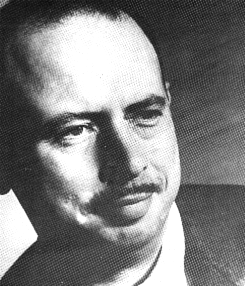Seventy years ago, Victor Serge put the finishing touches on his masterpiece — Memoirs of a Revolutionary: 1903-1941 — which he (correctly) considered “unpublishable” in his lifetime. On February 28, 1943 he wrote the following entry in one of his Carnets (Notebooks), which recently came to light in Mexico and were published for the first time in France in 2012.[1]
After 65 Years—Will Peace Finally Come to Colombia?
Colombia has the longest history of ongoing political violence in Latin America. Some date the beginning as April 9, 1948 when Jorge Eliécer Gaitán, the Liberal Party’s presidential candidate, was assassinated, leading to the Bogotazo riots that took 5,000 lives and unleashed a civil war between Conservatives on the one hand and the Liberals and Communists on the other. Between 1948 and 1958 that war took 200,000 more lives, injured hundreds of thousands more, and displaced perhaps a million.
The Left in Europe: From Social Democracy to the Crisis in the Euro Zone An Interview with Leo Panitch
Adaner Usmani: I wanted to begin by asking you about the history that precedes the crisis, and specifically about the evolution of European social democracy. On the one hand we have seen social democratic governments in Greece, France and elsewhere entirely complicit in the evisceration of the welfare state, and in the imposition of austerity. On the other hand, the tradition of which they’re a part brought many benefits to Europe’s working classes. The welfare state is a real achievement, after all, and it’s arguably held up better than many radicals argue. Certainly there’s a strong current of academic literature, known as the Varieties of Capitalism (VOC) school, which argues that its degeneration has been overstated.
Getting Serious About Class Dynamics: Culture, Politics and Class
Labor historians have detailed how the structure of the workplace, the cultural aspects of community, and spatial patterning all impact class consciousness. From coal mining that paradigmatically has the workers living in the hollow and the bosses on the hill to the ethnic enclaves of steel town where different nationality/ethnic groups each occupied their own distinct neighborhoods with taverns, union halls and churches, socialization matters.
From Occupy Wall Street to Occupy the World: The Emergence of a Mass Movement
The Occupy movement has changed the American political landscape. We are at the opening of a new mass movement and a radicalization that presage an era of coming social upheaval and class conflict that require the left to both analyze these developments and to develop a strategy to intervene. The left today, small, divided, and weak, must develop an approach that will make it possible for it to grow and unite so that it can influence events.
Socialism and Homosexuality

SAME-SEX DESIRE has always been a part of human life.There is much evidence, though not yet conclusive, that a predominant sexual attraction to members of one’s own sex is innate. But innate or not, we know that it is definitely formed early in life, certainly before the age of ten.
Are U.S. Unions Ready for the Challenge of a New Period?
BY NOW IT SEEMS CLEAR that the United States has entered a new period of contradictory trends that presents a profound challenge to organized labor. First there is the deepening world recession that is bringing down some of American capitalism’s most high profile institutions from Wall Street to Detroit. At the same time, of course, it is wiping out millions of jobs, 4.4 million from December 2007 to February 2009.
Race Relations: the Problem with the Wrong Name

Instead of focusing on the historical and structural processes that reproduce racial inequalities from one generation to the next, discrimination is reduced to the level of discrete acts by discrete individuals. However, far more is involved here than individual acts of discrimination…
The Two Deaths of Max Shachtman

How we admired and respected Max! The “we” was small in number of course, for how many revolutionary socialists were there in the Thirties in this country? Only a handful of Trotskyists and not all of them had that special feeling for Max shared by “my crowd,” some barely teenagers, others in their late teens or twenties and a few oldsters crowding thirty.